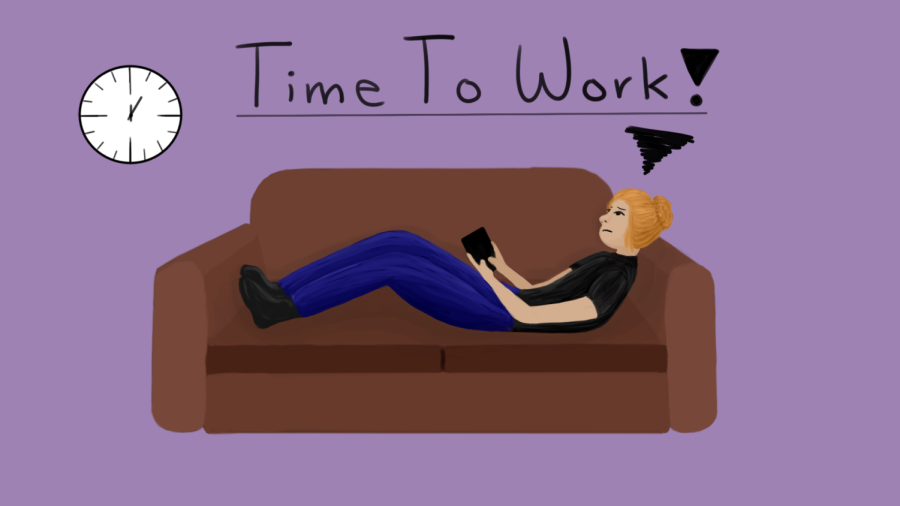Laziness doesn’t exist
We are forced into a world of toxic productivity
Opinion Editor Jeffrey Dratch writes that laziness is a manmade concept used to force people to continuously work.
March 22, 2023
Laziness is a social construct. This idea would probably make most readers think I’m crazy, however there is a growing movement of people coming to terms with the fact that laziness doesn’t exactly exist. The modern world forces us into a society where we feel the need to constantly work, constantly improving and getting promoted, while putting in little time for ourselves. This needs to change.
The idea of working hard is ingrained in American history, from the inception of this country. This concept is a good thing, as almost everyone has a positive work ethic, however, we end up living to work instead of what should be taking place—working to live.
The majority of Americans work their entire lives, and by the time they start genuinely prioritizing their happiness, they are 65, the most common age for retirement. This is due to a variety of factors, partially by the idea of toxic productivity, but for most it is also the extremely high cost of housing and general living expenses in the United States. Working and earning a living is of course instrumental to living, and with national unemployment rates at 3.4%, almost everyone is working right now.
The problem with this becomes apparent when individuals make little to no time for things they actually enjoy, and are instead just so focused on work that they lose track of what’s important. And when people do take time to relax or participate in something they genuinely enjoy, they are simply called lazy.
We are surrounded by individuals who work their entire life, as we see people on social media and even close peers talking about how they’re staying up late into the night working, getting little sleep and inevitably waking up just to spend their entire day working.
This develops the feeling for many that we need to catch up, and we are lazy if we aren’t putting in the same amount of work as others. This very problem helps form the idea of toxic productivity, the need to constantly be working on something, which ends up backfiring and leading to people actually being less productive, as they end up having a lack of energy and motivation from overworking.
Toxic productivity can lead to individuals overworking themselves, neglecting important aspects of their lives, and even causing physical and mental harm in an effort to stay productive. Unfortunately, this toxic attitude towards productivity has become increasingly normalized in today’s world, leading many people to believe that laziness simply does not exist.
While some might consider taking a break or sleeping in as lazy, for others it is essential for their mental health and well-being. It’s necessary to understand that there are healthy forms of rest and relaxation which can boost our overall productivity levels rather than deplete them, especially during a time of a mental health epidemic, with over 20% of adults in the United States suffering from mental illness from 2019-2020.
When we don’t allow ourselves time away from work or other obligations, it becomes easier for us to slip into unhealthy habits such as perfectionism or overworking without realizing it until it’s too late.
When trying to become more productive without falling prey to toxic productivity practices, one should focus on creating a balanced lifestyle which allows plenty of time for self-care activities. This could include taking regular breaks throughout the day or setting aside specific days off during the week where you don’t do any work at all. This will give your mind the opportunity needed to recuperate after long periods of intense concentration and activity.
It is instrumental to remember that occasional “laziness” is okay; allowing yourself moments here and there where you take a step back from everything else going on around you can actually help increase your motivation levels. At its core, being productive doesn’t mean having zero downtime whatsoever—instead it means finding ways to manage our lives effectively while also prioritizing our own needs along the way.











